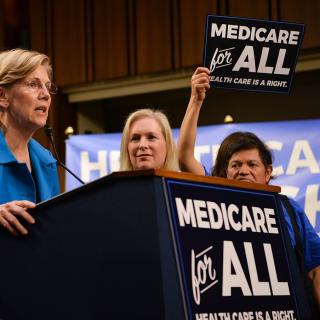Advertisement
In these dark days of “fake news” and “alternative facts,” it’s hard to trust any politicians. How can we tell apart the ones who spout bald-faced lies from those who actually tell the truth, the whole truth and nothing but the truth? Fortunately, we now have a science-based tool for telling which politicians are comfortable committing to the truth, and which are not, to help guide our votes in the Columbus City Council and Board of Education elections.
Let’s get the myths out of the way: we can’t trust our gut on who is telling the truth. Extensive research in psychology shows that our minds tend to search for and interpret information in ways that align with our previous beliefs, a phenomenon known as “confirmation bias.” In other words, we’ll tend to believe whoever tells us what we want to hear, whether or not what they’re saying is true. No wonder that a study showed that most Americans who see fake news believe it.
Traditionally, mainstream media had the role of separating the wheat of truth from the chaff of deception. However, trust in the mainstream media is at an all-time low, with a majority of citizens across the political spectrum believing it publishes a lot of fake news. Thus, politicians who want to cover up their corrupt and unethical activities are now using the label of “fake news” to attack reporters trying to uncover their misdoings. As a result, mainstream media’s ability to separate the liars from the truth-tellers has been weakened.
To address this problem, a group of scientists and concerned citizens in Columbus came up with a way to show which politicians are committed to the truth: the Pro-Truth Pledge at ProTruthPledge.org. The pledge asks signers to commit to 12 behaviors that research show correlate with truthfulness, including fact-checking before sharing information, citing one’s sources and retracting incorrect statements.
Pledge-takers include private citizens who want to promote truthfulness in our society, and public figures who want to do the same and also commit themselves to being held accountable for truthful behavior. The pledge works based on crowdsourcing. Private citizens who signed the pledge evaluate the statements of public figures who signed the pledge, holding the latter accountable for any misinformation. The mechanism works: a number of politicians have already retracted or clarified statements they have made. This same accountability mechanism rewards public figures who take and stick to the pledge with a positive reputation boost. Since they are being constantly evaluated, we know we can place more trust in the truthfulness of their statements.
This pledge is a tool that is grassroots-based and does not come from any traditional institution: it relies on people who care about the truth to make it work. It may sound like a pipe dream, but so did Wikipedia when it got started. If people can make Wikipedia work through crowd-sourced factual information, we can make the Pro-Truth Pledge work as well.
The pledge has a meaningful impact in elections only when at least one candidate for public office takes it, and having candidates take it depends on having private citizens take it and promote it. For example, over 250 citizens in Columbus took the pledge, and called on their elected officials to do so. As a result, in the November 7 Columbus City Council election, two out of six candidates (Jasmine Ayres and Will Petrik) and have taken the pledge. So did three out of six candidates for the Columbus Board of Education (Erin Upchurch, Amy Harkins and Abby Vaile). They are now being held accountable for truth-oriented behavior by the many citizens in Columbus who have taken the pledge.
The other candidates for City Council and Board of Education had a number of opportunities to take the pledge through being personally approached by volunteers for the pledge project. They were shown the signatures and names of hundreds of their constituents who wanted them to sign the pledge. They also learned that a number of other candidates for the same office signed the pledge. Yet, these other candidates have chosen to avoid taking the pledge. Columbus voters will have a real choice between candidates who have committed themselves to being accountable for truthful behavior, and those who have not.
While the pledge originated in Columbus, it has by now spread throughout the US and even abroad. Over 150 public figures have taken the pledge, including globally-known thinkers such as Peter Singer, Jonathan Haidt and Steven Pinker. Over 50 politicians have taken the pledge in more than a dozen states. Thus, on November 7 a number of citizens across the country will have a chance to identify and reward truth-tellers.
You can make a difference by taking the pledge yourself, and calling on your elected representatives and candidates for office to take it as well. They can still do so before the November 7 election, giving you a chance to separate the wheat from the chaff before you decide for whom to vote and hold them accountable for sticking to the facts. If you can take it, why can’t they?
Dr Gleb Tsipursky is the author of the forthcoming The Alternative to Alternative Facts: Fighting Post-Truth Politics with Behavioral Science. One of the lead creators of the Pro-Truth Pledge, he is a professor at the Ohio State University and President of the nonprofit Intentional Insights.



